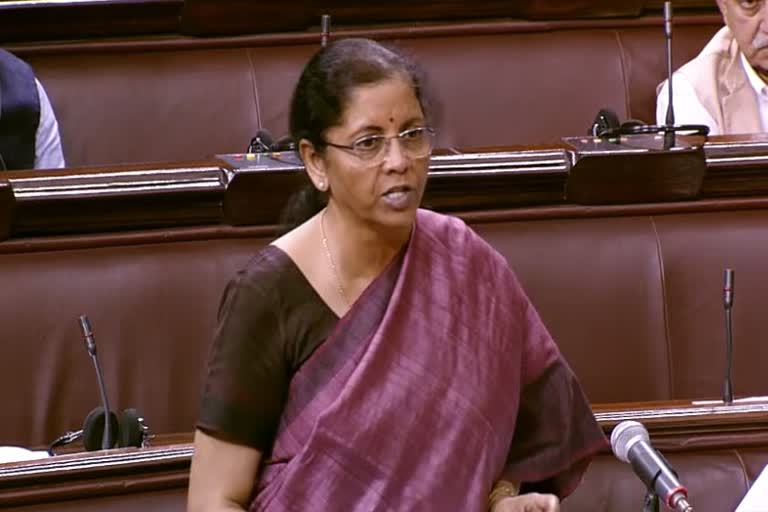New Delhi: The Parliament on Friday approved a bill that will provide an opportunity to taxpayers to settle disputes by paying due taxes with a complete waiver of interest and penalty till March 31.
The Direct Tax Vivad Se Vishwas Bill was passed by voice vote and returned by the Rajya Sabha as it was a money bill. It was approved by the Lok Sabha on March 4.
Replying to the debate on the bill in the Upper House, Finance Minister Nirmala Sitharaman said the government is definitely taking all steps towards addressing the issue of reduction of litigation on a priority basis.
Responding to whether the bill will provide amnesty to those who are covered under demonetisation related cases, she said this scheme is "not an amnesty scheme at all" but the taxpayer has to pay a certain amount and that tax amount, the undisclosed cash deposit during demonetisation is liable to suffer a tax of 75 per cent.
"Hence the taxpayer has to pay 75 per cent for settling the dispute regarding the cash deposits which have been made during the period of demonetisation. So it is not an amnesty for anybody," Sitharaman said.
She said cases above Rs 5 crore have been excluded from the scheme so that large evasion related cases and fraud cases do not come into the scheme and take advantage of it.
"That is why we have limited it to the topmost extent of Rs 5 crore and not beyond. So we do not want disputes which involve larger sums to take advantage of the scheme much before we can even establish what is behind those kind of disputes," the finance minister said.
She said March 31 is the date given to pay dues without any additional penalty, whereas between March 31 and June 30 the dues can be paid with additional penalty of 10 per cent.
However, eventually the end of the scheme date will be notified by the government, Sitharaman said.
Read more:ICICI Bank to invest Rs 1,000 crore in Yes Bank
The finance minister clarified that only those disputes which pertain to or come under the Income Tax Act will be taken up under the scheme, not those which fall under the Wealth Tax Act.
"If the prosecution is based on Income Tax Act and therefore the tax authorities have taken you for a prosecution of course you will be excluded but if you have prosecution under various other acts you are welcome to join the scheme so the exclusion is only for those prosecutions which are taken under the Income Tax Act by the tax authorities," she said.
